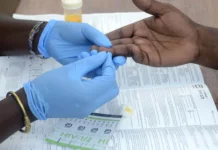
By Were Kelly
A significant reduction in US government-led climate science under the Trump administration is creating a market vacuum, spurring a rapid rise in private data firms that are moving to fill the gap in environmental monitoring.
This shift is fuelling innovation and job creation in the green tech sector but also raising profound questions about equity and access to critical planetary information.
Startups and established tech companies are now launching their own satellites, deploying advanced sensors, and developing sophisticated models to track everything from greenhouse gas emissions to deforestation rates.
This data is increasingly sold to corporations, insurance firms, and even local governments that can afford it. “Innovation thrives in uncertainty,” said the CEO of one such data startup. “The private sector is stepping up where public capability is receding, creating a dynamic new industry.”
While this boom has created high-skilled jobs, particularly in US tech hubs, it also risks creating a two-tiered system for climate information. Wealthy entities will have access to the most granular, real-time data, while public institutions, developing nations, and academic researchers may be left behind.
A climate policy expert warned, “We are privatising the very foundation of climate understanding. When essential environmental data becomes a commodity rather than a public good, it exacerbates existing global inequalities.”
The regional focus of many of these new companies is the US heartland, where data on agricultural impacts and extreme weather is in high demand. The long-term implications are significant, as the quality and ownership of climate data will shape policy and business decisions for decades to come.
The trend appears set to continue, fundamentally altering the landscape of climate science. The world is watching to see if this new model can provide the reliable, comprehensive data needed to address the climate crisis, or if it will fragment our collective understanding at a time when unity is most required.
Source: Reuters


















